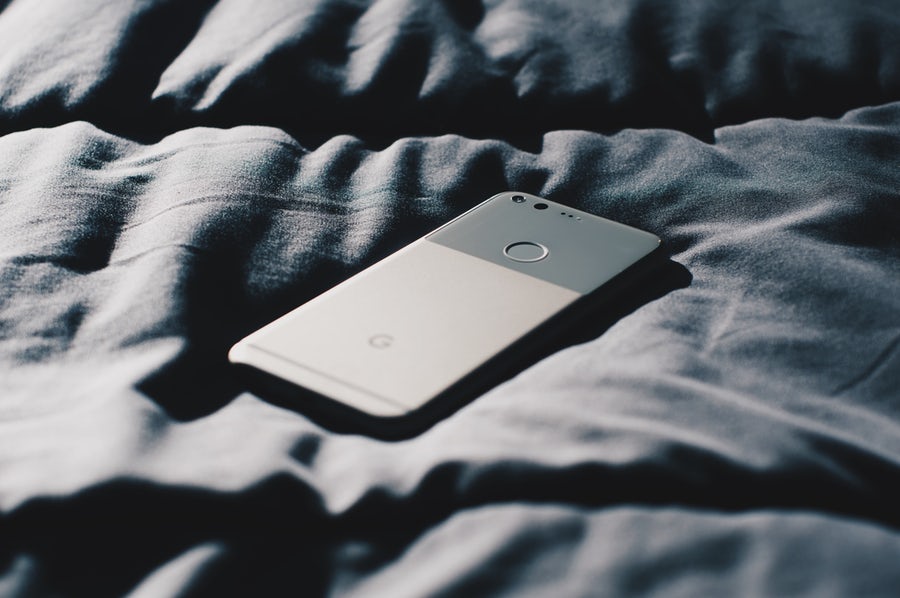
Screens are a part of our lives. They’re ubiquitous and they’re not going away. Whether you appreciate or resent them, it’s important to think about how and when you use them in your down time with your partner.
As a couples therapist, I’m seeing a trend in relationships. More and more couples come to me complaining about feeling like their partner isn’t able to disengage from one or more of their devices and simply be available and present. Often, partners have bullet-proof reasons for being on their phones or devices. “I need to check the weather for our daughter’s soccer game tomorrow.” “You know my job requires I keep tabs on the news.” “I need to leave the volume on in case my mom (or dad or sibling or some other important person in crisis) calls or texts.” “I just can’t afford to miss responding right away to a potential client.” Phones and tablets have become lifelines, safety vests, and umbilical chords. They’re kept within reach on nightstands “for emergencies” or “because I use it as an alarm.”

I’ve heard clients complain about waking up in the middle of the night to their partner’s face illuminated by light from a screen as they read the news, write emails, or scroll through social media feeds. “It helps me when I can’t sleep,” they say. Or else someone leaves the table to go to the bathroom on a date night and checks their phone in private, or feels compelled to respond to a friends’ urgent message, and loses track of time. Their partner confronts them: “That took twenty minutes! This is supposed to be our time. Why are you on your phone?” It can feel like your partner is having an affair with a screen. And in a way, they are.
Devices hijack partners’ attention away from the present moment, and away from one another. Energy that would otherwise be accessible to the couple gets syphoned off into the bottomless pit of the virtual ether: a world of pixels, words, images, projections, fears, and fantasies. The easy distractions devices offer, the constant stream of “news” and “notifications” have become a slippery slope for couples trying to connect and deepen their bond. Now more than ever, partners use screens and devices to avoid difficult conversations, to numb uncomfortable feelings, to check-out when they feel anxious or overwhelmed, and to multi-task activities that by definition are not multi-taskable. Presence and intimacy require a singular focus.

Portable devices that grant us access to a seemingly infinite virtual world are a relatively new historical phenomenon. As a result, we don’t yet know the impact that using these devices regularly has on our bodies and minds. But the research to date is disturbing. In a recent Washington Post article, Isaac Stanley-Becker writes about the findings of a pair of researchers at the University of the Sunshine Coast in Australia who have been noticing “horn-like” skeletal protuberances growing on people’s skulls. These growths are related to chronic postural misalignment and smartphone use. This discovery “marks the first documentation of a physiological or skeletal adaptation to the penetration of advanced technology in everyday life.”
Just as with addictive substances like cigarettes, alcohol, or drugs, when screens become a person’s consistent go-to pleasure, or one of their primary escapes from stress, it sets the stage for potentially serious problems in a relationship. In committed, intimate relationships, a person who relates more to their phone than to their partner may look up from their screen one day to find themselves stranded in the emotional equivalent of a dead-end, deserted town, wind whistling through broken windows and tumbleweeds blowing by the road. Over time, excessive screen use and over-reliance on devices can perpetuate the inability to connect with actual, real-life, embodied people, to read social cues and signals, to feel competent and confident, to self-soothe and to communicate effectively in vivo.

Even when screen and phone use doesn’t reach this level, it can impact a partner’s mood. In her article “Emotional Contagion” in Psychology Today, Carlin Flora notes that “a 2018 study from Tilburg University in The Netherlands found that viewers readily catch the emotions of popular YouTube vloggers” as well as being impacted by the images, headlines and social-media feeds they view to entertain or distract themselves. When partners are on their screens, they’re impacted by what they see. Given the incendiary, sensationalized, and unfiltered nature of much of today’s online content, regular device-use can have a consistently negative impact on a viewer’s mood. This negativity invariably carries over into relationships.
It’s important to be aware of the siren call of screens, to find conscious ways to tie yourself to the mast of your mindful awareness–like Odyseuss–and hold true to higher values that reflect your relational aspirations. Practice being present with yourself, your feelings, emotions, sensations, and habitual thought patterns. Try to avoid the impulse to repeatedly distract yourself with a phone, when you get the itch to check messages, send texts, or follow an endless crumb-trail of click bait. Take long, planned breaks from screens throughout the day. Instead of scrolling through friends’ feeds or playing video games when you feel bored, ask yourself, “What am I feeling that’s uncomfortable right now? What would happen if I just felt this with full awareness rather than avoiding it?”
References:
Stanley-Becker, Isaac. Young People Are Growing Horns. The Washington Post. June 20th, 2019.
Florin, Carla. Emotional Contagion. Psychology Today. August Issue, 2019.




